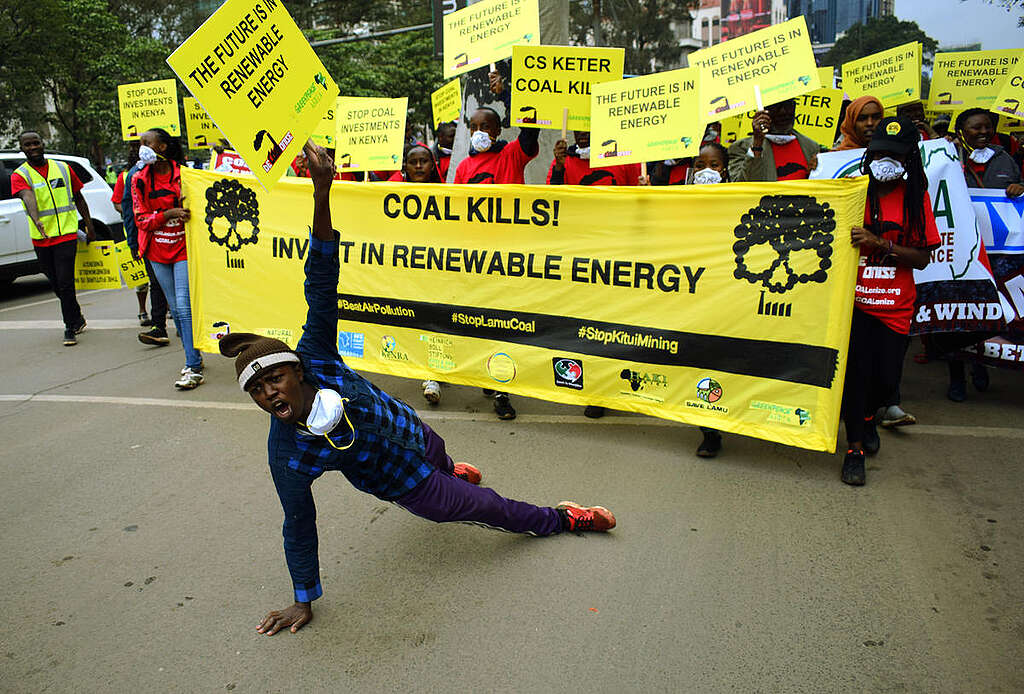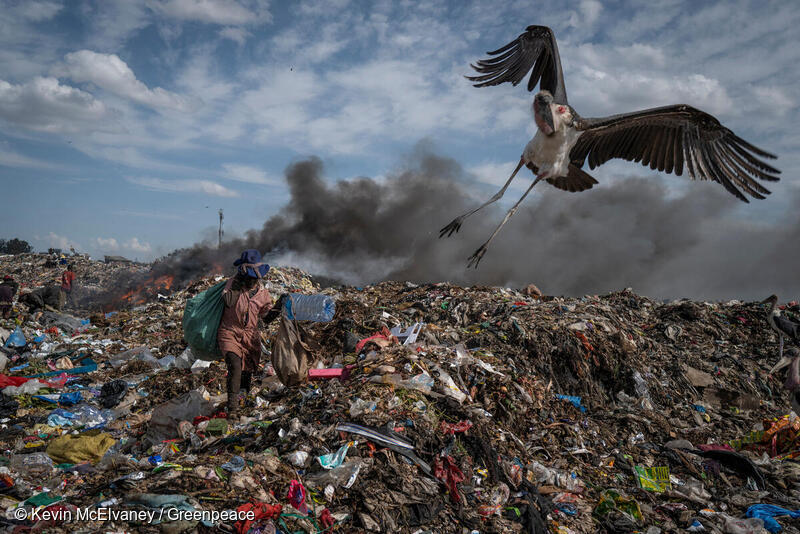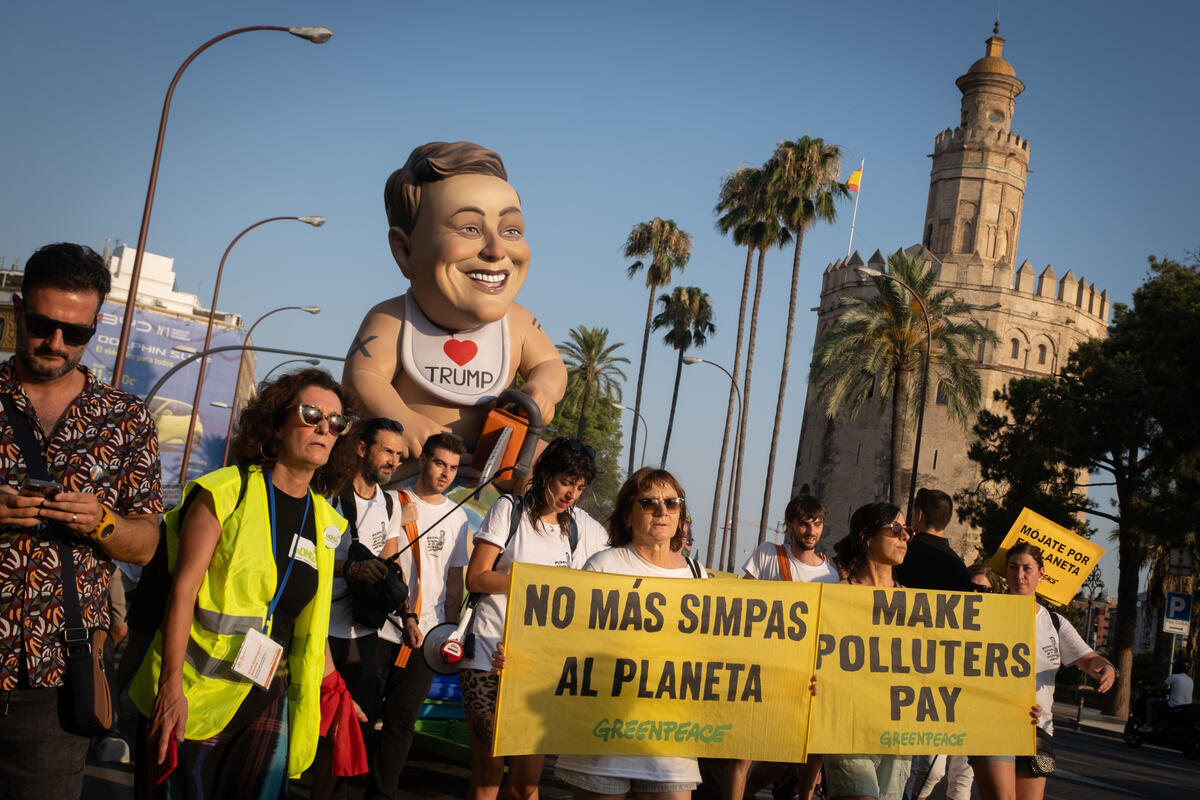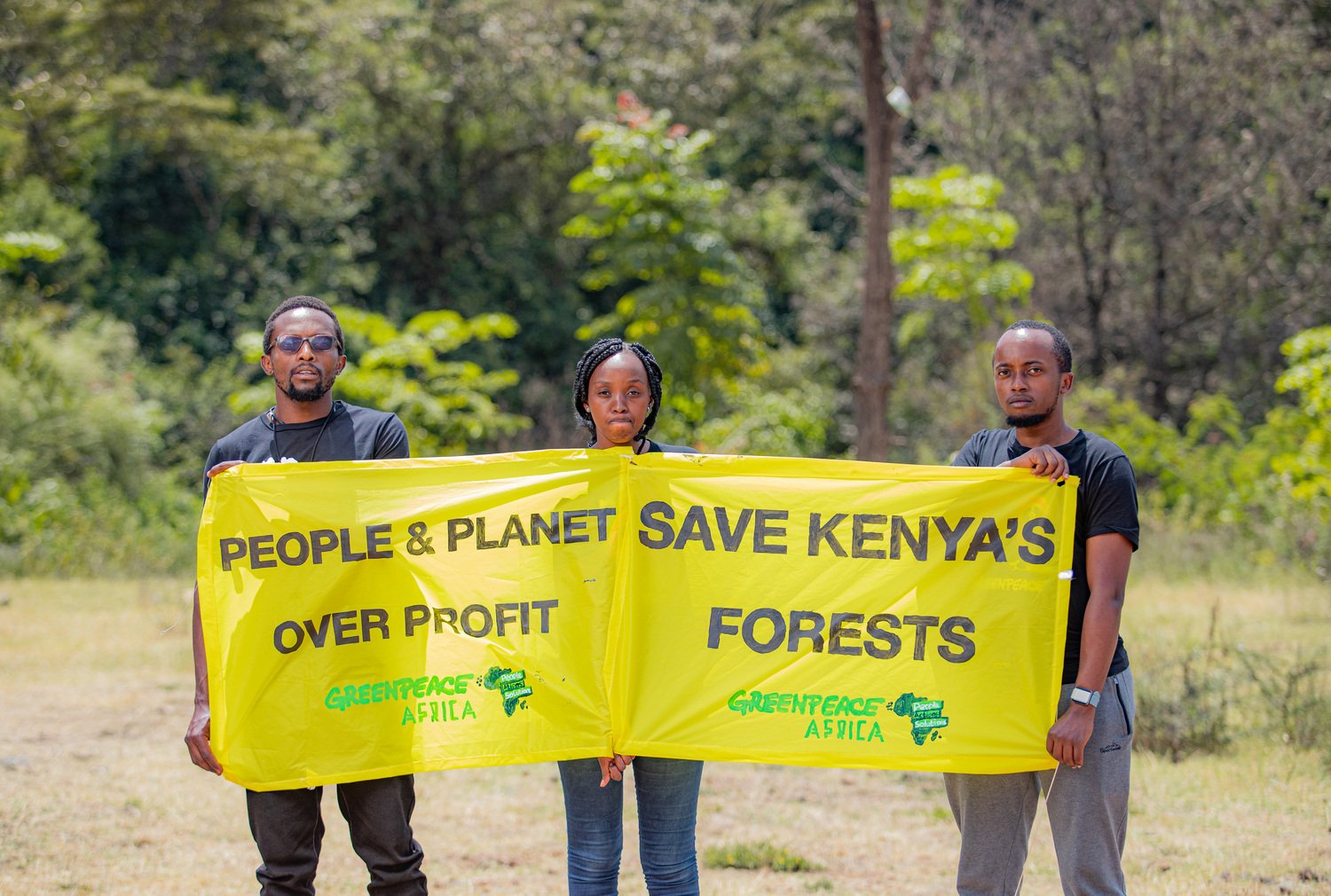Nairobi, 5th July 2021- In response to the media report of the Thwake dam water being declared unfit for human use Greenpeace Africa Campaigner, Amos Wemanya has said:
“Water pollution in Kenya is threatening our economy, the lives, livelihoods and health of Kenyans. Families and communities that depend on the flowing rivers for domestic and human use are at risk of contracting water-borne diseases due to water contamination while our authorities watch in silence and inaction.”
Kenya’s water bodies have for a long time been a sink of untreated effluent from industrial and municipal activities. The waste disposed of in Nairobi and Athi rivers including its tributaries has been causing a lot of challenges to the residents of Nairobi and the communities in the neighbouring counties. Most of the water systems in these areas have turned into drainage channels and are quickly dying.
‘’Authorities that are mandated to protect Kenyans and our water bodies from the harm of water pollution must take decisive and firm actions to stop pollution of these water bodies. It is time that the Kenyan authorities through state agencies such as the National Environment Management Authority (NEMA), Water Resources Management Authority and the Ministry of Environment and Forestry acted urgently and decisively to protect Kenyan water bodies, lives and livelihoods.”
A report by the United Nations revealed how contaminated water is difficult, costly, and often impossible to restore to its former state where it is safe for human use. Water pollution includes human and animal waste, chemical pollution from mines, salinity from irrigation and plastic pollution which negatively impacts freshwater ways. The government needs to take a leading role in protecting these water resources.
ENDS
Media Contacts:
Greenpeace Africa Press Desk: [email protected]
Timothy Nzioka,
Communications Consultant,
[email protected],
+254 722898259




